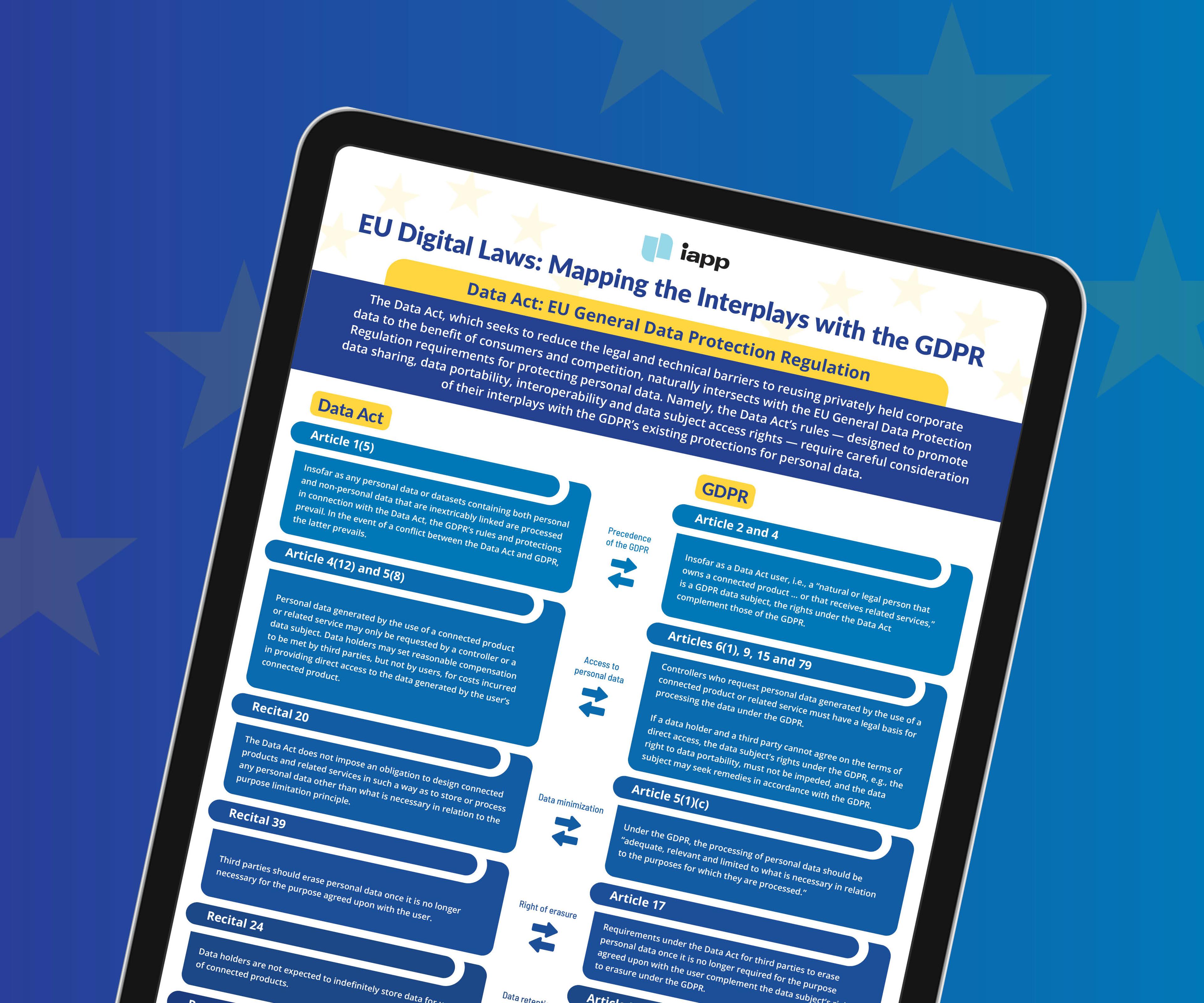TOOLS AND TRACKERS
How Defendants Are Attacking CCPA Claims

This chart identifies some of the arguments raised by defendants seeking to avoid liability for alleged violations of the CCPA.

Published:
Contributors:
Dale Rappaneau
AIGP, CIPP/E, CIPP/US, CIPM, CIPT
The California Consumer Privacy Act provides a limited private right of action under Section 1798.150 against businesses failing to protect personal information from unauthorized disclosure. Plaintiffs have brought more than 140 CCPA-related actions to date. This resource identifies some of the arguments raised by defendants seeking to avoid liability for alleged violations of the CCPA.

This content is eligible for Continuing Professional Education credits. Please self-submit according to CPE policy guidelines.
Submit for CPEs